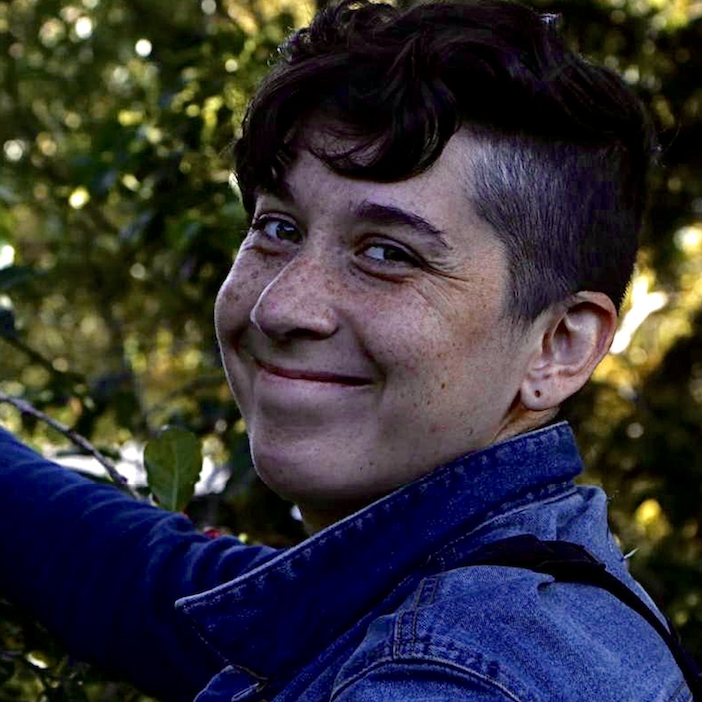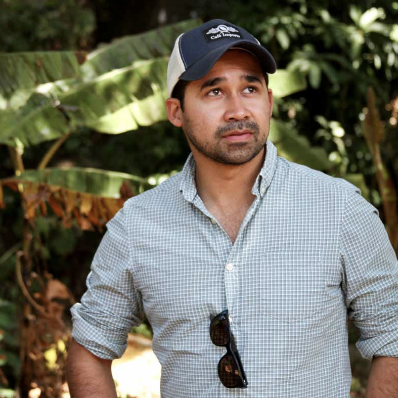NICARAGUA
SOURCING
January 14th-20th, 2024
Most of our travel every year is sourcing. We spend these days in cupping labs, visiting farms, and speaking directly with producers and exporters about the year’s harvest and what is available for purchase. You’re invited to source with us in Nicaragua. Attendees will visit multiple farms and follow us as we meet with producers. You’ll cup and book fresh crop microlots and larger regional production lots while cultivating relationships with the people behind the offerings.
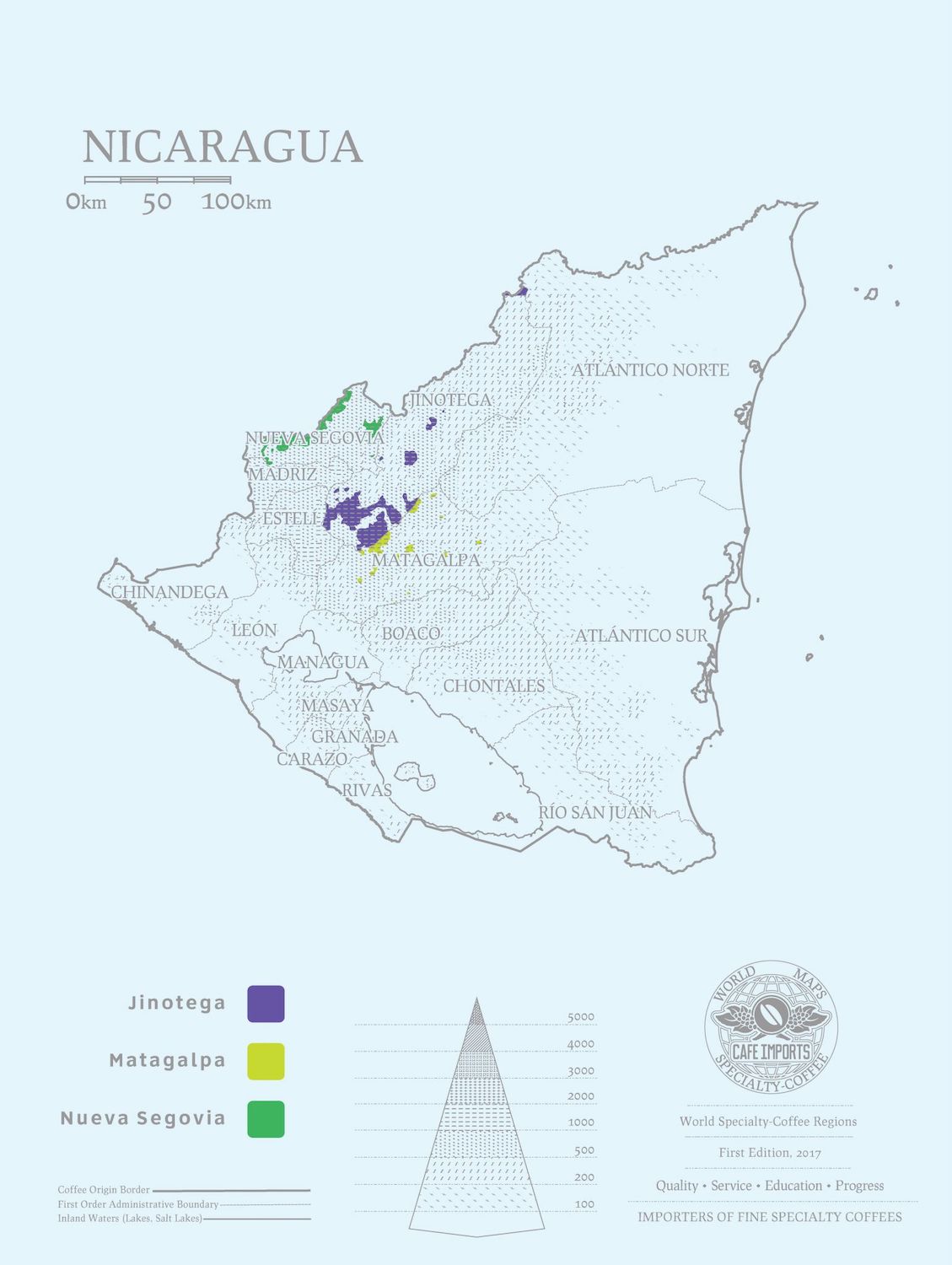
About Nicaragua
Nicaragua has primarily been a source of full-container Fair Trade and Organic-certified coffees for Café Imports. In recent years, though, we have been exploring different partnerships for more specialized coffees and microlots from individual producers and groups. We see great potential in the Nueva Segovia region, with its higher altitudes and the producers’ growing interest in quality varieties and experimental processing.
Coffee came to Nicaragua in the late 1800s, but it wasn’t until the middle of the 19th century that the crop established itself as an important export. Increasing global demand, especially from North America, and diminished supply from the Pacific Islands contributed to a steady development of the coffee market here. The first large plantations emerged in the Managua District around this time, spreading to Jinotepe, Matagalpa, Jinotega, and Nueva Segovia. The Nicaraguan government encouraged European immigrants from Italy and Germany to buy land for coffee, and until land redistribution created small parcels of land (typically smaller than 5 hectares), the majority of the coffee was controlled by white landowners who often exploited local labor with very low wages and poor conditions.
Nicaragua’s political and economic instability through the long Nicaraguan Revolution period (roughly 1974–1990), as well as the destruction of Hurricane Mitch in 1998, are among the contributing factors that kept the country out of the specialty spotlight. The breaking up of larger estates into smallholder plots created some confusion and disjointedness among the agrarian sector through the ‘80s and into the early ‘90s. USAID and Fair Trade work in the country has been instrumental in unifying small producers into cooperatives and grower societies.
While Nicaragua has historically been planted with good-performing varieties like Typica, Bourbon, Caturra, Maragogype, and other classic cultivars, areas of relatively low altitude (800–900 masl), the remoteness of the small farms, and battles with coffee-leaf rust in the past decade have remained obstacles in the way of the country achieving clear, prized single-origin status. Nicaragua continues to develop its reputation as a coffee origin to watch, though. Coffee is still its most important export, accounting for over $1.2 billion in exports, and about 15% of the country’s labor force is involved in the coffee sector.
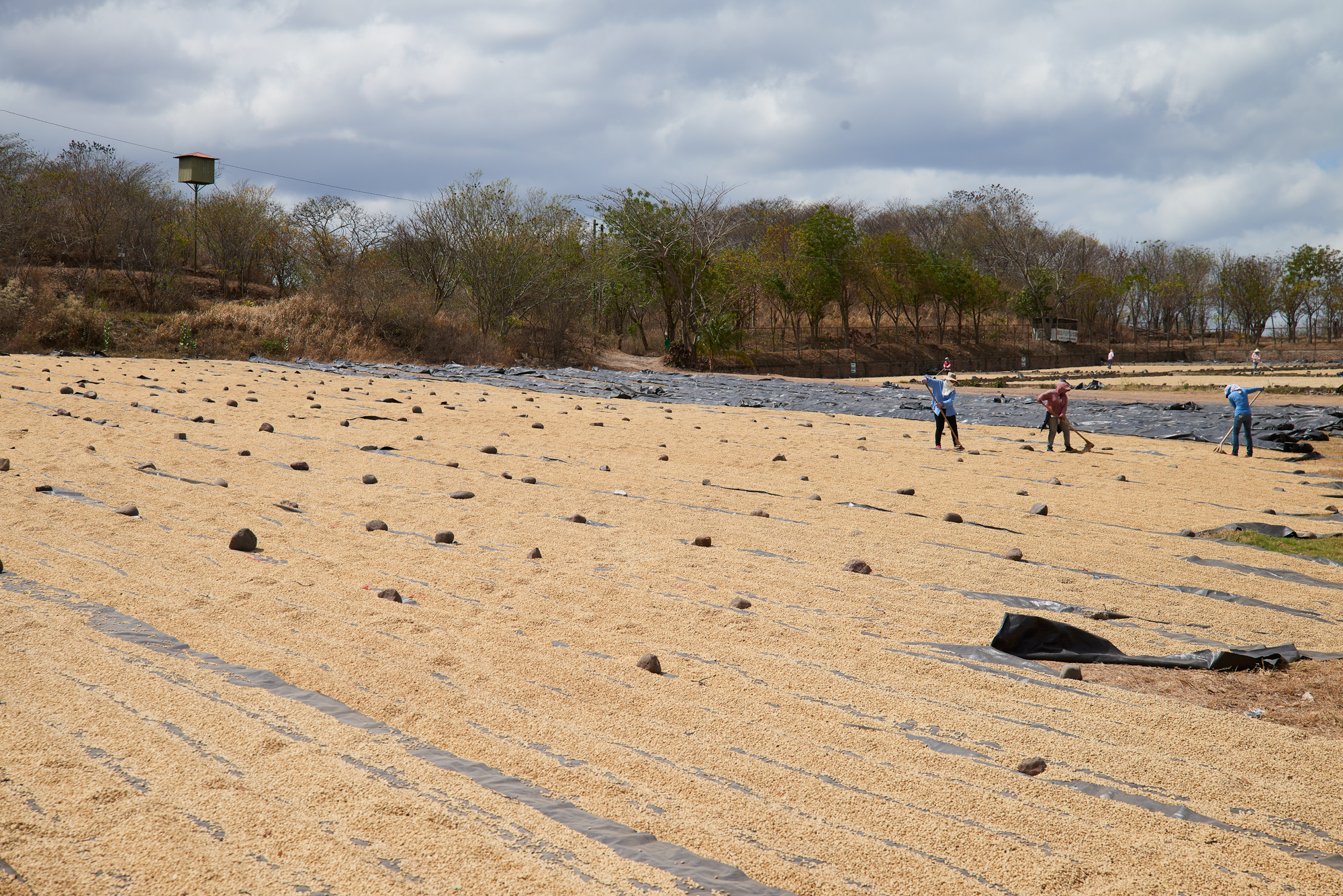
PRODECOOP
PRODECOOP is a second-level cooperative organization that groups 38 grassroots cooperatives made up of 2,300 small producers, 27% of whom are women. These producers and their respective cooperatives are located in the departments of Esteli, Madriz, and Nueva Segovia, in northern Nicaragua. On average, they export 30,000 coffee bags, of which 50% of the total volume is Organic and Fair Trade certified. The member co-ops deliver blended parchment coffees from their associates, and PRODECOOP typically cups, bulk blends, and sells those coffees under its own mark.
Since its founding, PRODECOOP has developed a long line of programs that aim to support its members in a multitude of different ways. They are able to fund these programs using their Fair Trade premium. The initiatives include supporting educational opportunities for children, providing loans to women in and affiliated with the organization, providing cervical cancer screenings and other healthcare services, offering member education regarding pest control and fertilization, and creating and supporting systems to increase food security for the communities.
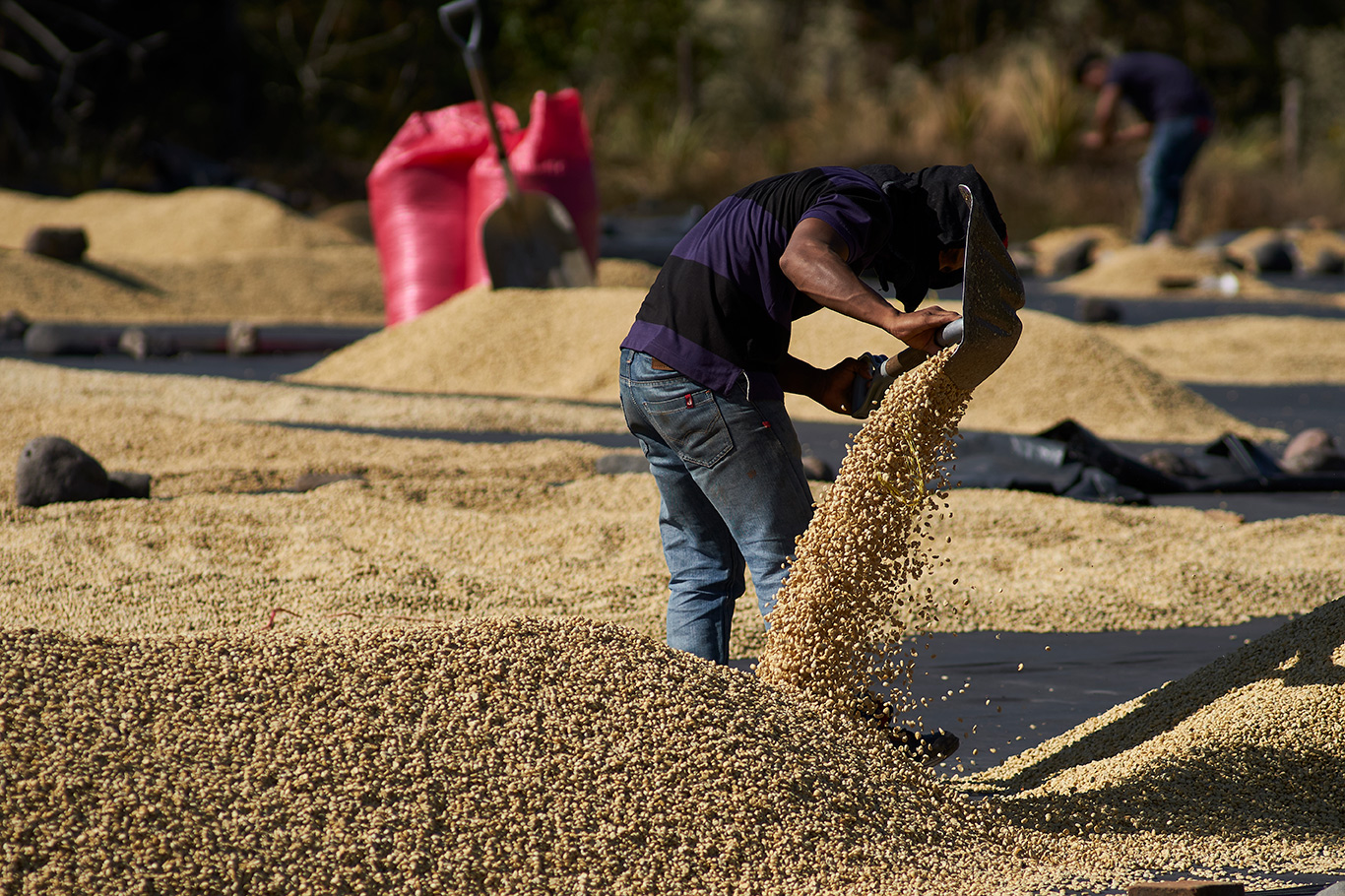
Cafetos de Segovia
Cafetos de Segovia micromill is a labor of love from the Albir family. Sisters Ana and Martha Albir, inherited their passion for coffee from their father, who bought a coffee farm in 1991, tending to it with dedication until political strife forced his family to leave the country and cease the day-to-day operations of the farm. In 2007, Ana and Martha decided to take over the farm and continue their father’s tradition. In 2015, they invested in a mill, and began Cafetos de Segovia in 2016, providing milling and exporting services for themselves and 11 nearby farms owned by friends and family.
Nicaragua is known for producing larger quantities of standard coffees. Microlots are much less common, despite the presence of good quality varieties like Bourbon and Caturra. The lower elevations throughout the country and the prevalence of coffee-leaf rust have made it difficult for producers to achieve that elusive microlot status. The Albir sisters and their associates are interested in producing specialty coffee and are going the extra mile to separate lots based on variety and experimental processes such as honeys and naturals, innovating Nicaraguan coffee.
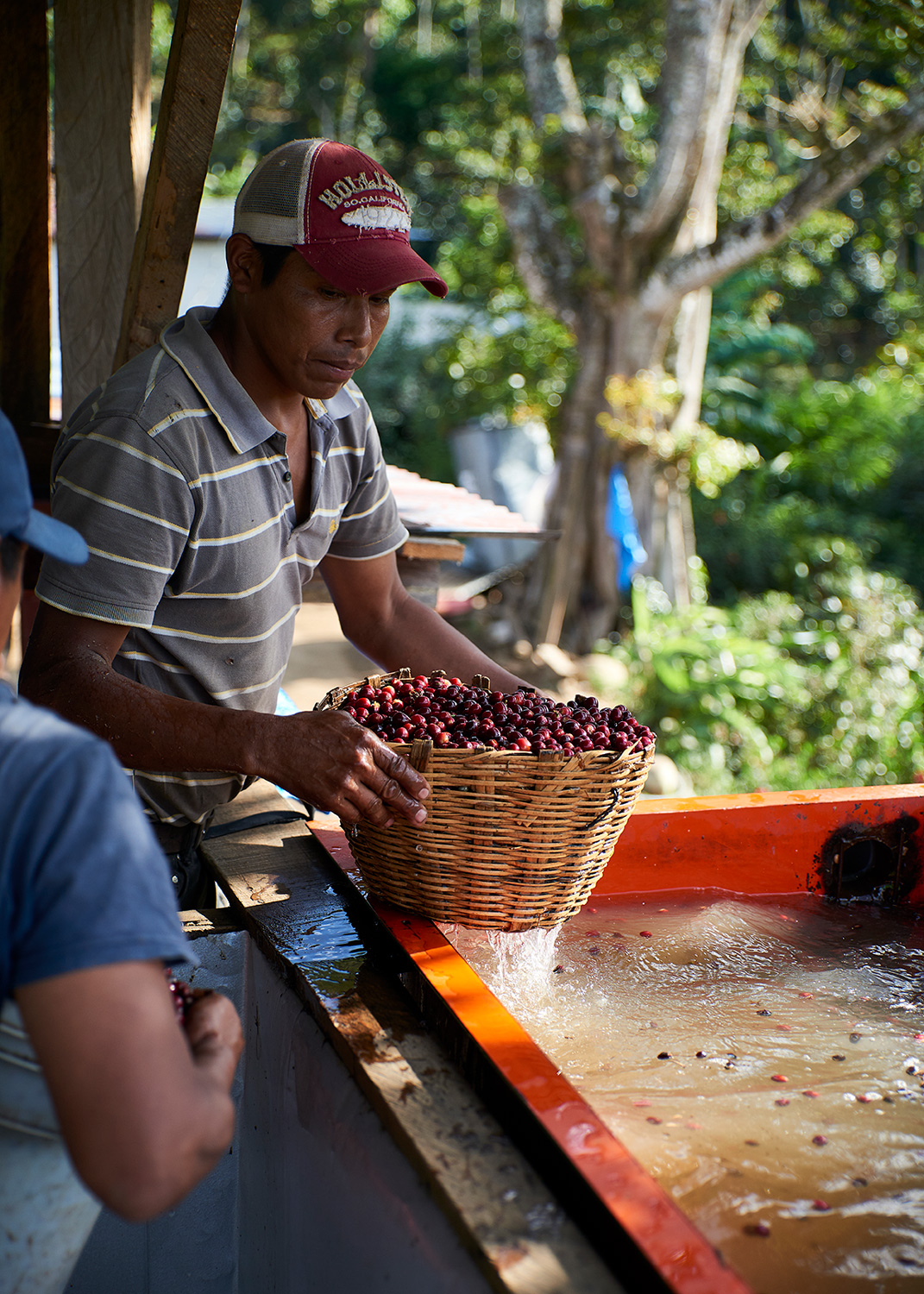
Trip Details
ITINERARY
Attendees are responsible for booking arrival and departure flights and their hotel stay in Managua on February 14-15 and 19-20. Cafe Imports will book all other hotels and domestic travel, but attendees are responsible for the cost upon check-out. See BOOKING AND EXPENSES for more information.
Sunday, January 14 – Arrive in Managua, Nicaragua
- Flight (attendee-booked): Arrive at Augusto C. Sandino Intl. Airport (ACS)
- Hotel (attendee-booked): Hotel Camino Real Managua – January 14-15
Monday, January 15
- Transport to Nueva Segovia
- Hotel (Cafe Imports-booked): Hotel Frontera en Ocotal – January 15-19
Tuesday, January 16 – Visit Cafetos Micromill
Wednesday, January 17 – Visit PRODECOOP
Thursday, January 18 – Visit Aldea Global (Tentative)
Friday, January 19 – Transport to Managua
- Hotel (attendee-booked): Hotel Camino Real Managua – January 19-20
Saturday, January 20 – Depart from Managua, Nicaragua
- Flight (attendee-booked): Depart from Augusto C. Sandino Intl. Airport (ACS)
BOOKING AND EXPENSES
Trip attendees are responsible for the following:
Booking/cost of international flights to and from Managua, Nicaragua (ACS – Augusto C. Sandino Intl. Airport)
- Arrive on January 14
- Depart on January 20
Booking/cost of 2-night stays at Hotel Camino Real Managua, January 14-15
Booking/cost of 2-night stays at Hotel Camino Real Managua, January 19-20
- 95 USD/night – 190 USD total
Cost of 3-night stay at Hotel Frontera en Ocotal in Nueva Segovia upon check-out. Cafe Imports will book on behalf of attendees.
- 40 USD/night – 120 USD total
Cafe Imports will cover group meals and ground transport. Individuals may arrange private meals or transportation for themselves at their own expense. Reach out to us if you have any questions about the booking details.
RSVP
Connect with Cafe Imports to RSVP.
For more information and/or to reserve your spot fill the form below.
We are approaching this trip with a farm visit-focused agenda and a somewhat flexible schedule for cupping. Attendees will experience a harvest season in Nicaragua and learn how coffee is picked, processed, and commercialized. Extensive cupping and sourcing experience is not required to attend, but please be advised that Sourcing trips are designed around roasters’ intent to identify and pre-book coffees for their upcoming menus.
Cafe Imports Staff
Resource Mission:
To partner with our roaster clients to share experience and knowledge at the ground level, and to build and nurture relationships in coffee-growing regions worldwide in an effort to advance the craft of specialty coffee, from the farm all the way to the café.



